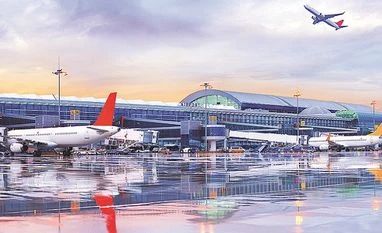Although it went into effect only on Saturday, a ban on electronic devices like laptops and tablets on certain overseas flights bound for the United States and Britain has already prompted business travellers to rethink their travel plans.
For travellers who frequently cross through the West Asia and North Africa, the choices put them between a rock and a hard place: They can check their devices and lose a day or more of productive work, as well as run the risk of damage or theft, or trade a nonstop flight on a high-end Persian Gulf carrier for connecting flights on one of the major American or European airlines, where amenities and leg room are likely to be skimpier.
The gulf carriers are scrambling to accommodate their most lucrative customers, but there is only so much they can do. They cannot, for example, accommodate travellers who work at companies that prohibit checking electronic devices for security reasons.
“There are a lot of policies out there that basically say you can’t be separated from your laptop,” said Greeley Koch, executive director at the Association of Corporate Travel Executives.
Companies that deal with proprietary or sensitive data, including government contractors, often require that company devices remain with the employee at all times. These travellers will have to forgo the gulf airlines that fly directly to the United States and spend more time making connections and waiting out layovers in European cities.
“We’re going to see people shifting routes to get to other carriers,” said Brian Jenkins, an aviation security expert at the RAND Corporation.
Airlines like Emirates, Etihad Airways and Qatar Airways, which in recent years have come to dominate parts of the long-haul market, stand to lose market share, especially among high-paying business travellers unwilling or unable to fly halfway around the world without their electronic devices.
Before the bans on devices took effect, some gulf carriers had taken steps to try to mitigate any falloff in business travel bookings. Emirates, Etihad Airways and Turkish Airlines established procedures allowing travellers to check laptops and tablets at the gate.
“Our aim is to ensure compliance with the new rules, while minimising disruption to passenger flow and impact on customer experience,” Tim Clark, the president of Emirates, said in a statement. He added that the free offering “enables passengers, particularly those flying for business, to have the flexibility to use their devices until the last possible moment.”
Nikita Maruvanda, an internal consultant for General Electric who is based in Atlanta and described her travel schedule as “24/7,” said it would be impossible to travel without her electronic devices on business trips.
In some cases, she said, her total flight time can be as long as 20 hours. “I have a laptop and an iPad for work, and we’re generally always working on our flight,” she said. “You generally have a full workday on that flight.”
For a coming trip, Maruvanda said, she will probably choose a European carrier so she can work while en route. “I think now I’m just going to get a KLM flight,” she said, referring to the Dutch airline.
Industry experts predict this will become more common as long as the ban is in place. “This will impact people’s ability to travel non-stop,” said Jeremy Quek, the air practice line lead of the Global Business Consulting division of American Express Global Business Travel.
Koch, of the corporate travel association, said he had heard from more than 100 of his members since the ban was announced. “It speaks to the level of concern that the travel managers and companies and travellers have about the device ban,” he said.
These concerns, Koch said, are twofold: The safety of travellers as well as the logistical headache of complying with the ban.
Quek said he had heard similar fears. “Right now, the conversation with clients is around getting clarity around the rules and the scope and knowing that it’s extremely fluid,” he said. “It’s a very real challenge.”
Part of the difficulty are the parameters of the ban, which prohibits in-cabin electronic devices on United States-bound flights from 10 airports in Muslim-majority nations, based on fears that terrorists could smuggle bombs aboard inside larger devices. Although it specifies that travellers are prohibited from taking devices larger than a mobile phone or smartphone into the cabin, it does not include dimensions.
©2017 The New York Times News Service
Unlock 30+ premium stories daily hand-picked by our editors, across devices on browser and app.
Pick your 5 favourite companies, get a daily email with all news updates on them.
Full access to our intuitive epaper - clip, save, share articles from any device; newspaper archives from 2006.
Preferential invites to Business Standard events.
Curated newsletters on markets, personal finance, policy & politics, start-ups, technology, and more.
)